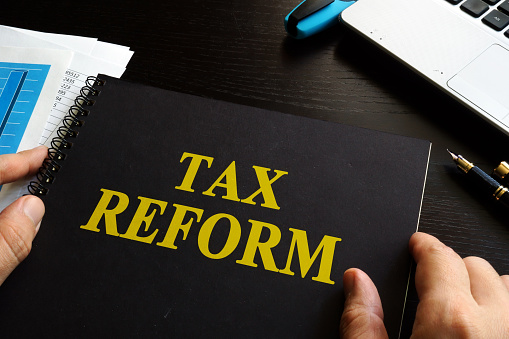Tax Reform: The Impact on Small Businesses

The most recent tax reform bill has left many small businesses scrambling to figure out what they need for 2018 filings. The bill has brought on some of the most drastic changes made to personal and business income taxes in decades, leaves many small business owners scratching their heads. Here are some of the biggest take-aways you should be aware of.
Deduction changes:
Businesses that tend to get work done over dinner or drinks have lost a major deduction. Meals and entertainment for business purposes, which affects many small businesses, are no longer deductible regardless of who pays. The only exception to this is for employers hosting holiday parties and similar events at the workplace for employees. Deductions are still allowed for meals and drinks purchased during business travel. Also, businesses looking to invest in new equipment can immediately deduct 100% of eligible business assets through 2022. After 2022, bonus depreciation phases down 20% every year until it reaches 20% in 2026.
Pass-through entities:
Roughly 95% of American businesses are pass-through entities. Pass-through entities are not income taxed, instead owners are taxed directly; pass-through entities include sole proprietorships, S corporations, partnerships, and any LLCs. Generally, pass-through tax rates have been lower than corporate tax rates and without the double taxation aspect. However, this new deduction is meant to give small businesses and the self-employed an incentive to work for themselves instead of for an employer—but be aware that the total earned income for the year must be under $157,000 single or $315,000 joint, if married. The 20% deduction reduces taxable profits but will not impact the amount of self-employment tax owners of pass-through entities will owe.
Corporate tax:
Most of you are aware of the corporate tax changes, as it has been widely covered on the news. Previously 35%, the new maximum rate of just 21%, may send small business taxpayers who want to cut self-employment taxes relaunching as a C corporation to take advantage of the new lower tax rate for C corporations and personal service corporations. The tax bill is also making it easier to convert pass-through entities to C corporations on account of these changes.
When to set up an S–Corp:
Once a small business consistently exceeds $70,000 in annual profits after expenses from 1099 income (compared to W-2 wages), it might be time to consider setting up an S-corp., according to a recent article in Accounting Today. That’s because S-corps. are subject to bookkeeping requirements—meaning owners need to file returns for themselves and the business. They also need payroll services to ensure that taxes are correctly deducted. Owners should weigh how much they will save on taxes (under the new bill) with an S-corp. versus how much they will pay to set it up and maintain it.
PrideStaff Financial has consistently earned Inavero’s Best of Staffing Diamond Award for exceptional Client satisfaction. Our highly skilled staffing consultants have the skills necessary to meet your hiring or job seeking needs. Contact us today to learn more.



